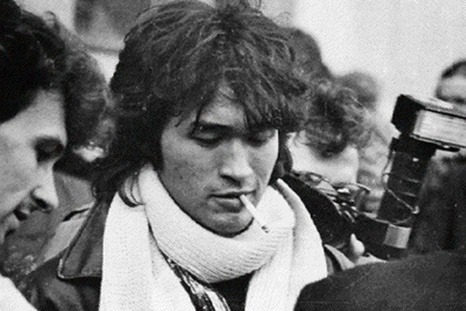The 50s was a horrendous period for rights of free speech. In America, HUAC( House Committee on Un-American Activities Committee) enforced the kinds of censorship on arts that Hitler would be proud of. From films to music, political messages were subtle if completely non-existent.
But as 60s and 70s approached, things became better. People began to see through the government red scare propaganda and the televised Vietnam War helped the citizens to wake from their stupor. The youth became politically active and brought about a wave of counterculture.
But in Soviet Union, it was completely different. There was no space for pansy American style democracy here. This was a land, besieged by the hawkish capitalist nations, protecting a ideology that has been stamped out in most of the world. You could say whatever you wanted to, but the government could not guarantee that your head be on your neck after you said it. It was certainly not happy years for the political activists of Soviet Union. Amidst this political chaos rose a band- a Soviet equivalent of Sex Pistols- Kino. Instead of the Queen, the Kino protested the Soviet government and wars. And instead of resorting to saying "dirty old fucker" on a live television, Kino performed anti-government songs under the Soviet Union's direct watch.
Headed by Viktor Tsoi, this band is considered to be a pioneer in the Russian rock. At the time, rock was severely limited to few cafes and were mostly underground- and even these were heavily monitored by government agents. To the mainstream conservative force of the Soviet society, rock was a corruptor of the youth. And if that was not enough, Kino even had the balls to put anti-communist and anti-war messages within their songs. The music and the lyrics appealed to the disaffected youths of the Soviet. At its heyday, Tsoi performed at the national stadium of Soviet Union with 62,000 screaming fans singing anti-government songs.
 |
| The Ultimate Badass |
Kino's music was incredibly fresh at the time. Not only was it melodic and stirring, but the short concise poem-like lyrics was something else altogether. Kino is one of my favourite rock bands of this era and definitely noteworthy. Here are some of my favourite Kino songs. (Pachka Sigaret is a must listen)
Kino- Kukushka (Cuckoo)
Kino- Gruppa Krovi (Blood Type)
Kino- Zveda Por Imeni Solnce( A Star Called Sun)
"He doesn't remember the words "yes" and "no",
He doesn't remember rank or name.
And is able to reach to the stars,
Not counting that it's a dream,
And to fall, scorched by the Star called Sun."
Kino- Pachka Sigaret ( Pack of Cigarettes)
" Noone wanted to be found guilty without wine,
Noone wanted to pick the coals with bare hands
And death without music is not picturesque,
So I wouldn't want to die without it
But if there's a pack of cigarettes in my pocket
Then the day's not all that bad
And a boarding pass to a silver-wing-plane,
That takes off leaving just a shadow behind."
Kino- Сказка (Strange Tale)
Kino- Невесёлая Песня (Unhappy Song)